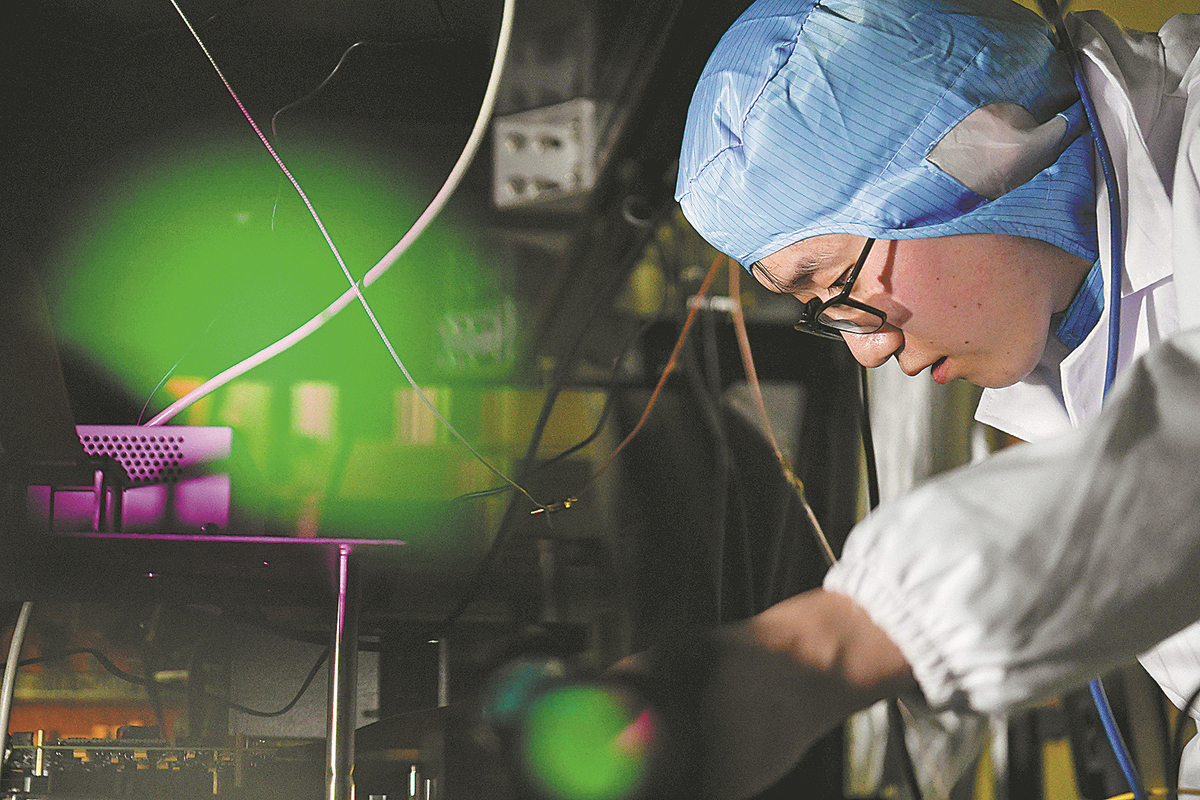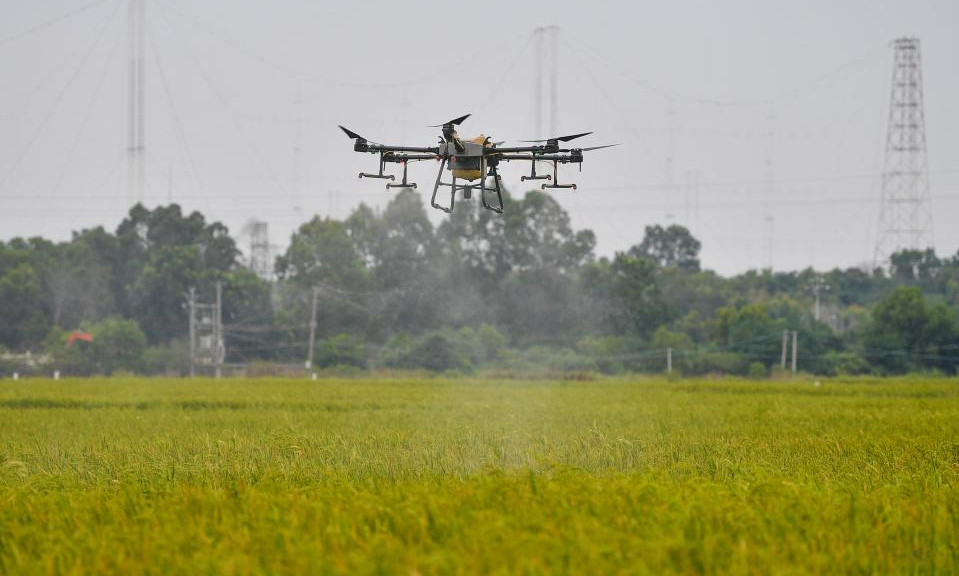China forging ahead as innovation powerhouse (4)

A researcher works in the State Key Laboratory of Quantum Information at the University of Science and Technology of China in Hefei, Anhui province, on Jan 31. ZHANG DUAN/XINHUA
International Cooperation
Over the past decade, China has established partnerships in science and technology with more than 160 countries and regions and has launched joint research projects on climate change, food security, health and other fields.
In Africa, the development of space technology and capabilities is a crucial area for cooperation with China, said David Monyae, director of the Center for Africa-China Studies at the University of Johannesburg in South Africa.
"The integration of space technology in the management and governance of water resources, marine resources, environment, climate, and infrastructure can yield enormous societal and economic benefits for Africa," Monyae wrote in an article published by IOL, a South African news website.
He said that China and African nations are already collaborating extensively in the space sector. China has offered to set up centers for China-Africa cooperation in satellite remote sensing and train African aerospace professionals.
Chinese companies have helped build five satellites for African countries, including Nigeria, Algeria, Ethiopia and Sudan, and these projects included a significant transfer of skills and technology, he said.
Between 2016 and last year, China launched 207 space missions. Some had groundbreaking outcomes, such as a soft landing on the far side of the moon, as well as those of huge importance domestically, such as returning lunar samples to Earth and orbiting around Mars, Monyae said.
When China launched its first satellite, Dongfanghong 1, into space on April 24, 1970, it was a poor nation, said Monyae.
"China's success shows that even a poor nation can make remarkable achievements in the space industry with solid leadership, long-term sustainable investment and patience," he said.
In developing high-speed railway technologies, China has moved from being a follower to a leader over the past three decades and is willing to share its knowledge and experience with other countries. International projects in which it has already participated include the Jakarta-Bandung High-Speed Railway in Indonesia, the China-Laos Railway and the Belgrade-Budapest Railway, which links Serbia and Hungary.
The first batch of trains manufactured in China have arrived in Jakarta, and Indonesia's first high-speed line is expected to open in June next year. The trains will be the fastest in Southeast Asia.
US Tech Cold War
China and the US have been collaborating in a wide range of areas, including agriculture, energy, environmental protection and basic research, since the US-China Science and Technology Cooperation Agreement was signed in 1979.
Measured in terms of co-authored scientific research papers, US collaboration with China exceeded collaboration with traditional partners such as the United Kingdom, Germany and Japan. China and the US were each other's main partner in scientific collaboration, according to a 2014 research report prepared for the US-China Economic and Security Review Commission.
The trend reversed when former president Donald Trump took office in 2016 and began imposing export controls, cracking down on Chinese tech companies and targeting researchers with ties to China in an effort to contain the country's technological development.
Despite criticism, the administration of current President Joe Biden has continued the policies, further aggravating tensions with China.
"Denying them access to American technology will simply provide extra incentive for Chinese scientists and engineers to work harder and seek other innovations that go around American-owned technology," Koo said.
Confrontation with China will lead to a lose-lose situation, and the US might lose more since China has a complete, robust manufacturing base that the US does not have, he added.
Jenny Lee, a professor at the Center for the Study of Higher Education at the University of Arizona, shared similar concerns.
Her study shows that many of the upward trends in US scientific output are supported by China: US research publications would have declined without Chinese co-authors, whereas China's publication rate would have risen without the US.
Her observations echoed another study by Margaret Roberts, a professor of political science at the University of California, San Diego.
By analyzing publication records for 102,000 scientists during the 2015-20 period, Roberts and her colleagues found that the US government's investigations coincided with a decline in the productivity of scientists with previous collaborations with scientists in China, especially when the quality of publications was considered.
Particularly in the field of biotechnology, the US and China are more complementary than competitive, Scott Moore, director of China Programs and Strategic Initiatives at the University of Pennsylvania, said in an article examining the impact of US-China decoupling on biotechnology.
For individual researchers, collaboration with a different country, especially China, will significantly increase the quality of their work, he said.
He said that COVID-19 vaccines were "a powerful example" of how US-China knowledge networks helped translate basic biotech research into commercial and medical applications.
"Washington's security-driven approach to China risks harming US competitiveness in biotechnology instead of enhancing it," said Moore, adding that the US may miss the opportunity to share in mutually-beneficial technologies and collaborate with China in addressing shared challenges.
Wang Xu in Tokyo contributed to this story.
 |
Photos
Related Stories
- China on threshold of top 10 most innovative economies: WIPO
- Chinese mainland rises to 11th place on WIPO's innovation rankings
- New growth drivers gain steam amid China's innovation push
- Feature: African youth behind digital innovation in Africa with "China experiences"
- China holds national mass entrepreneurship, innovation week
- China set to launch mass entrepreneurship, innovation week
- Beijing achieves high-quality growth powered by innovation
Copyright © 2022 People's Daily Online. All Rights Reserved.









